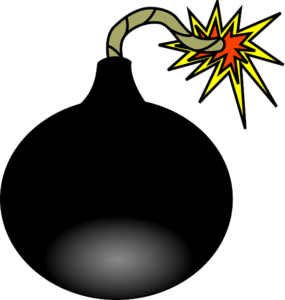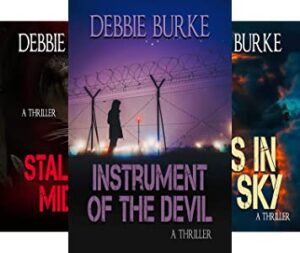
Time is the wisest counselor of all. —Pericles
* * *
It’s baaaaack!
Early Sunday morning Daylight Savings Time reentered our lives, and we all lost an hour of sleep. Interestingly, the U.S. is one of only about 34% of the world’s countries that observe DST. So why did we decide to use this strange time shift phenomenon?
BEGINNINGS
Benjamin Franklin probably had something to do with it. As the U.S. Ambassador to France in 1784, he wrote a satirical letter to the Journal de Paris saying Parisians could save money on candles and oil just by getting up earlier in the summer. Barely a hundred years later, time zones were invented.
According to the National Museum of American History
Before 1883, towns across the nation set their own times by observing the position of the sun, so there were hundreds of local times. Instead of Eastern Standard Time, for example, there was Philadelphia Standard Time or Charleston Standard Time. In the 1850s, railroads began to operate under about fifty regional times, each set to an agreed-upon, arbitrary standard time. Rail companies often induced a region to abandon local time in favor of the railroad’s operating time.
On November 18, 1883, local times across the nation—determined by the position of the sun overhead—were consolidated into standardized time zones. Each zone had a uniform time within its boundaries. The railroads implemented the change for their own benefit. But gradually, despite scattered resistance, standard time became the way everyone kept time.
A DAYLIGHT SAVINGS IDEA
In 1895, a New Zealand entomologist and astronomer George Hudson made the first realistic proposal to change clocks by two hours every spring. Although his proposal wasn’t implemented, it may have set the stage for DST.
The U.S. Congress, of course, got into the act. Article I, Section 8, Clause 5 of our Constitution gives Congress the power to fix the standard of weights and measures, and that includes determining time. This resulted in several time zone-related bills.
Again, from the National Museum of American History
The federal government first officially recognized standard time during World War I, in an act to establish Daylight Saving Time. At war’s end, Congress repealed Daylight Saving Time in response to farmers more in sync with the sun than the clock. During World War II, Congress authorized a temporary year-round daylight saving time, dubbed “War Time.” No national legislation provided for Daylight Saving Time until the Uniform Time Act of 1966.
The Uniform Time Act of 1966 standardized the start and end dates for daylight saving time in the United States, and the authority for overseeing it was given to the U.S. Department of Transportation. Some interesting facts about options for DST are on the U.S. DOT website:
DOT also oversees the Nation’s uniform observance of Daylight Saving Time; however, DOT does not have the power to repeal or change Daylight Saving Time. Nor does DOT have any role to play in a State’s determination whether to observe Daylight Saving Time. If a State chooses to observe Daylight Saving Time, it must begin and end on federally mandated dates. Under the Uniform Time Act, States may choose to exempt themselves from observing Daylight Saving Time by State law. States do not have the authority to choose to be on permanent Daylight Saving Time.
DO WE REALLY NEED THIS?
Recent polls indicate most people in the U.S. are of the “pick one and stick to it” opinion. Unfortunately, about half want Standard Time and the other half want Savings Time to be the norm.
So here, I humbly propose my own solution to the time problem: Common (as in “common sense”) Time. I propose we make each time zone uniform with the time set to halfway between Standard Time and DST. For example, I am in the Central Time Zone. We would use Central Common Time. Instead of one p.m. Standard Time or two p.m. DST, Central Common Time would be one-thirty p.m. Simple, right?
Since I suspect my proposal has considerably less than a one percent chance of being enacted, I am willing to be Standard or Savings just as long as they don’t disturb my sleep anymore.
WRITING
But what does all this have to do with writing?
It’s well known that disruption in sleep habits has a negative effect on productivity. But according to an article on the Johns Hopkins University website about the effect of switching to Daylight Saving Time, it’s much more intrusive than that.
“The scientific evidence points to acute increases in adverse health consequences from changing the clocks, including in heart attack and stroke,” says sleep expert Adam Spira, PhD, MA, a professor in Mental Health.
The change is also associated with a heightened risk of mood disturbances and hospital admissions, as well as elevated production of inflammatory markers in response to stress. The potential for car crashes also spikes just after the spring forward, Spira says; a 2020 study found that the switch raises the risk of fatal traffic accidents by 6%.
Yikes. Better to fall asleep at your desk than go for an afternoon car ride.
HOPE
The Sunshine Protection Act (don’t you love the name?) that would make Daylight Savings Time permanent passed the Senate in 2022 by unanimous consent, but died in the House of Representatives. However, the SPA was reintroduced this year in both houses of congress. Will it pass? Only time will tell.
* * *
What about you, TKZers: Do you think we should go onto one time system and forget this switching back and forth? Does the time change have a negative impact on your work? Do you like the Common (i.e., average) Time idea?

Time is of the essence for Cassie Deakin and Frank White as they hunt a murderer.
Available at Amazon, Barnes & Noble, Kobo, Google Play, or Apple Books.






 Readers and movie viewers typically don’t take comic villains seriously because they’re often lousy criminals. They’re buffoons whose sloppy schemes go awry. Their supposedly clever strategies explode in their faces. Their mistakes get them knocked on their butts.
Readers and movie viewers typically don’t take comic villains seriously because they’re often lousy criminals. They’re buffoons whose sloppy schemes go awry. Their supposedly clever strategies explode in their faces. Their mistakes get them knocked on their butts. 



















